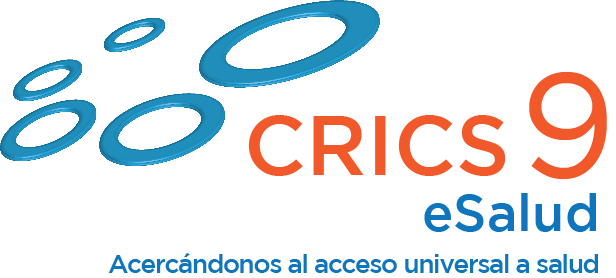Strengthening Knowledge and Information as Public Goods
We, the members of the Latin American and Caribbean Center on Health Sciences, meeting at the IX Regional Congress on Health Sciences Information (CRICS 9) and the 6th Regional Coordination Meeting of the Virtual Health Library (VHL6)
Considering:
That human welfare is the underpinning for modern society’s progress and development;
That equity in health constitutes a challenge for the health systems of Latin America and the Caribbean;
That information and knowledge are public goods whose universal and equitable production and circulation are fundamental to overcoming regional inequalities;
That national governments are responsible for ensuring that people have free access to information and knowledge;
That the Virtual Health Library (VHL) and LILACS, DeCS, and SCAD, through collaboration among the countries of the Region, are powerful tools which facilitate free access to high-quality scientific and technical information in health and the democratization of knowledge; and
That the Region of the Americas has strategies and action plans aimed at the production and equitable access to information and at bridging the gap between knowledge and decision-making on health.
We therefore urge:
The governments of the countries of our Region to strengthen the role of the VHL network in health systems in order to comply with the mandate contained in the Knowledge Management and Communications (2013–2018) and eHealth (2012–2017) strategies and action plans approved by the Member Governments of the Pan American Health Organization/World Health Organization (PAHO/WHO), and also to define public policies for equitable access to information and knowledge to promote equity, quality, and universal access to health care and for the prevention of disease and health risks;
PAHO/WHO to continue strengthening technical cooperation with the institutions responsible for national health information as part of the Latin American and Caribbean System on Health Sciences Information and to coordinate the management and formulation of policies and plans aimed at strengthening BIREME’s technical cooperation leadership;
Cooperation agencies and other regional and international entities to provide maximum support to the initiatives and actions that will strengthen information and knowledge on health as public goods; and
Academic institutions and all sectors of civil society to establish national partnerships in research, education, and technical training in information and knowledge management and resources sustainability.
We hereby commit ourselves to:
Prioritize broad access to all information and knowledge resources that are produced through technical cooperation among the countries of the Region;
Raise awareness among national authorities about the need to promote access to knowledge and to incorporate the use of information and communication technologies in the development of health policies and programs;
Implement and promote the dissemination of PAHO/WHO’s Policy on Research for Health (2009) and action plans derived from the Knowledge Management and Communications (2013–2018), and eHealth (2012 –2017) regional strategies, with emphasis on strengthening the VHL network;
Collaborate in building networks of people and institutions to share information and knowledge to improve health care and disease prevention and risk activities, especially those targeted to the Region’s most vulnerable social groups;
Promote education and training in the use of the VHL for activities related to health care and the prevention of disease and health risks, particularly among health services managers;
Promote technical cooperation with academic institutions to encourage research and training in information and communications technologies to support the eHealth strategy;
Strengthen the regional VHL portal through interoperability, including health information resources from all national and regional institutions;
Expand use of the structured vocabulary of DeCS (Health Sciences Descriptors) as the integrating element of information resources;
Strengthen partnerships with publishers of scientific journals to increase visibility of the Region’s scientific production, based on its quality and reliability, and LILACS’s recognition as the leading information source for regional scientific literature; and
Encourage institutions in the VHL network to undertake technical cooperation aligned with the strategic programming of the Latin American and Caribbean System on Health Sciences Information and technical cooperation strategies of the countries of the Region.



